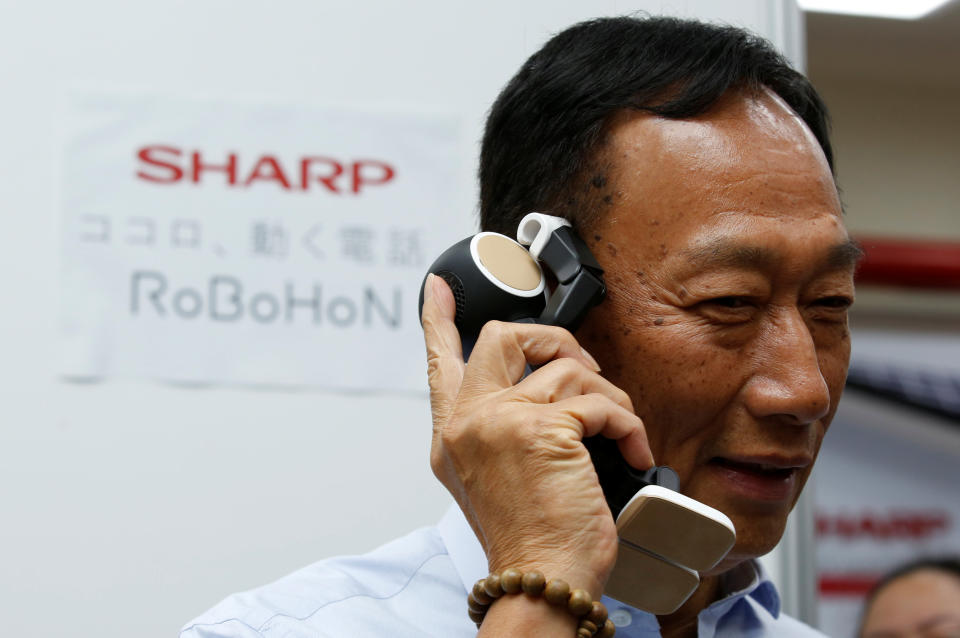Why Apple’s primary Chinese supplier might want a US factory
The Apple supplier Foxconn is considering building a US-based factory for making large displays in the US, an investment that could cost the Chinese manufacturing giant over $7 billion. But why?
The answer perhaps lies in its relationship with Apple (AAPL). The Nikkei Asian Review reported on Monday that a potential US plant may be a joint investment between Apple and FoxConn, which remains the largest manufacturer of iPhones and iPads.
During an interview this November with The New York Times, President Donald Trump said he had a post-election phone call with Apple CEO Tim Cook in which he told Cook, “Tim, you know one of the things that will be a real achievement for me is when I get Apple to build a big plant in the United States, or many big plants in the United States.”
“I think we’ll create the incentives for you, and I think you’re going to do it,” Trump added, according to the president’s own account.

While it’s unclear at this time what those incentives will be, Foxconn’s move might have something to do with Trump’s repeated pledge to to impose a 45% tariff on imports from China to spur job creation and innovation stateside.
“I think this move is motivated by Trump and his 45% tariff on anything imported into the US,” Ann Lee, an authority on Chinese economic relations and adjunct professor of economics and finance at New York University, told Yahoo Finance. “If that happens, then companies like Apple stand to lose a great deal. That’s the only reason why I think the economics might make sense.”
Indeed, when looking at Apple’s overall supply chain — one which famously adheres to the motto “Designed in California” but “Assembled in China” — the move doesn’t make much sense, Lee contended.
“Lots of tech comes from China, and lots of tech comes from Korea,” she added. “To have one factory squared away in Pennsylvania, outside the [Apple] supply chain and to ship all these other parts there, you might not necessarily be saving any export costs.”
Perhaps quite the opposite. While such a factory would be a win for US job creation, the real question is whether consumers would ultimately be fine absorbing the costs associated with moving jobs stateside. Indeed, FoxConn founder and chairman Terry Gou estimated that consumers could end up paying up to $500 more for products manufactured in the US, not because they offer more functionality but simply because of where they were made.
While it’s hard to believe Apple would stand for increased pricing along those lines, any investment by Apple in Foxconn’s expansion into the US would be a political victory for Trump, who has criticized the iPhone maker time and again for outsourcing jobs to China.
“If Trump wants to pull jobs back, we’ll have to give a lot of companies tax breaks, maybe free land, free who knows what to make it cross-competitive and keep the jobs here,” Lee said. “I mean, China already does that. So that’s something Americans have to consider.”
But will Americans want to pay hundreds more for their brand-new iPhones?
—
JP Mangalindan is a senior correspondent for Yahoo Finance covering the intersection of tech and business. Follow him on Twitter or Facebook.
More from JP:
How Silicon Valley reacted to Trump’s inauguration
AMD CEO: Why it’s good to be the smaller guy
Threesome app CEO: ‘Swiping is dead’
Nick Jonas explains why you should buy his new headphones
5 ways Apple can get back in the game in 2017

